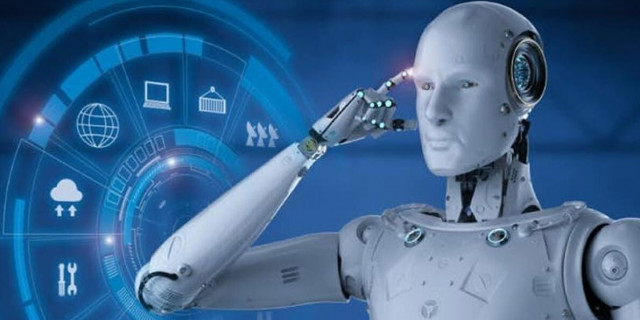Skills you don't have to learn thanks to AI

These are five talents you may now avoid mastering as a result of recent advances in artificial intelligence.
The application of artificial intelligence (AI) has increased dramatically during the past several months, notably after the release of OpenAI's ChatGPT says an article from Imane El Atillah for EuroNews.com.
Yet, while it could be appropriate to start planning for a world dominated by AI, more often than not results might be overblown and AI powers overhyped.
Individuals fear an uncertain future in which they may lose their employment, security, and social standing as a result of the increasing automatability of their abilities. Yet for it to work correctly, AI will always require human cooperation and occasional intervention.
We don't want to rely entirely too much on AIs in the future, because what if the coronavirus is replaced with a gigantic computer virus that leaves all of our computers inoperable and disables or locks all of our computer systems? Futures expert and best-selling book Bernard Marr told Euronews Next.
Thanks to AI, you may bypass acquiring some skills.
Despite the fact that AI is not anticipated to perfectly imitate human talents, it is getting better at repeating simple, robotic activities.
This can help people save time and give them more room to experiment with using unique human qualities like imagination and creativity.
When you consider the vast array of powers that AI presently has, people frequently become frightened. What does this entail for my career as a writer, for instance, will all of our articles eventually be written by technologies like ChatGPT? And no, that's the solution. But what it will do, Marr continued, "is enhance our work.
These are five talents you may now avoid mastering as a result of recent advances in artificial intelligence.
1. Composing
Simple reports, news stories, and other types of material may be generated by AI using its natural language generation capabilities.
As AI language capabilities develop, it will eventually replace certain human writing tasks by summarizing data, suggesting changes, and coming up with new ideas.
Employees are already writing material for human resources departments with job descriptions using chatbots like ChatGPT.
According to Reuters, some people are even earning additional income by utilizing AI to produce and sell various types of books and materials on Amazon.
2. Graphic Arts
AI-powered technologies may help with activities like creating graphics, creating layouts, and optimizing color schemes, which can minimize the amount of manual design effort.
There are pioneers employing AI to develop their style and skill, despite claims that doing so is not creative.
For instance, a photographer who amassed thousands of followers on Instagram for his exquisite photos later acknowledged that the images were really produced by the AI program Midjourney and then edited in Photoshop.
3. Data input
In five to ten years, data entry and processing will probably be automated. Imane Adel, executive vice president of strategy at Paymob, stated to Forbes that machine learning algorithms are capable of entering data more quickly and accurately than people.
AI can now recognize and turn printed or written text into digital data thanks to machine learning algorithms like optical character recognition (OCR) technology, decreasing manual mistakes and saving crucial time.
4. Data evaluation
AI can swiftly analyze enormous volumes of data, finding patterns and insights that people would overlook or misinterpret, which may result in better decision-making.
"Now, we have artificial intelligence (AI) that can easily go through our data, analyze it, find trends, and perform some analysis for us. It can do fundamental financial accounting functions as a result of all of this, Marr told Euronews Next.
5. Editing videos
By automatically choosing and compiling the finest pictures, adding transitions, and changing audio levels, AI-powered editing tools can help non-editors.
Moreover, it may help with jobs like color correction, video stabilization, and picture retouching. Moreover, AI systems may produce previews, which help consumers see their finished work.
The state of employment in the AI era
AI may be the answer to decades of humans being forced to destroy their creativity in order to focus on doing simple, boring activities by its capacity to quickly automate repetitive chores.
If you look at many occupations, we spend a lot of our incredible human talent on things that don't actually offer that much value, Marr said. "Maybe in the long run, it [AI] can be a wonderful thing," Marr added.
The world can only become better if we can delegate this to the robots and devote our time to activities that truly benefit people, such as creativity and critical thinking.
Marr contends that humans and AI should interact in a way that is collaborative and similar to that of pilots and automated aircraft.
While an aircraft may fly autonomously in autopilot mode, there should always be a pilot on board in case of an emergency.
Many aspects of life that are susceptible to automation can benefit from the imaginative and creative solutions provided by human pilots, which many robots are very far from being able to do.
As a result, human traits are what would matter most in the age of artificial intelligence. Soft talents are anticipated to lead the way in becoming the most valued and in-demand abilities on the market, from critical thinking to creativity.